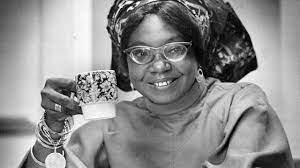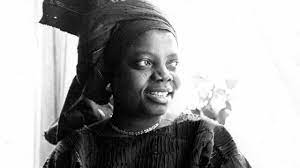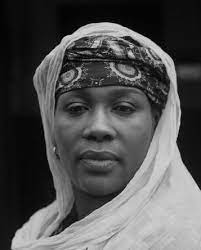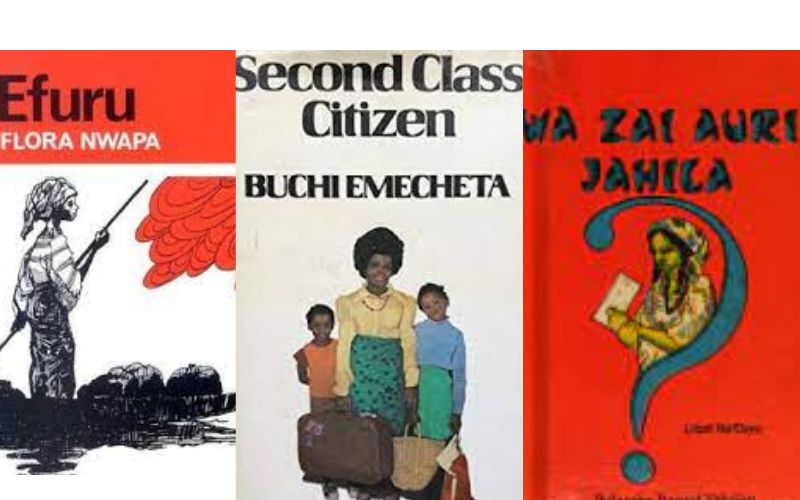How Pioneer Female Writers Shaped Nigerian Literature
By Michelle Mojisola Savage
Now more than ever, Nigerian women are making their mark in the literary world and breaking boundaries at home and abroad. From winning awards to presentations at book festivals, it is a rare occasion when a female Nigerian writer is not dominating the space. However, there was a time when the opposite was the case. A time when there were no female writers, and women were so insignificant that they were usually relegated to the background in books written by men.
Razinat Mohammed broached the issue in her essay “Female Representation in Nigerian Literature.”
“The women did not fit much into the heroic cadre of the society at that time and, therefore, were not subject of literary imagination or creativity.”
Although they alluded to female issues, the male writers of Achebe’s era wrote female characters that complemented their heroes. In their benevolence, they sometimes gave them higher roles as stepping-stones to their men's success. But why criticize them for their bland and stereotypical portrayal of females in their books?
It is not their territory, and as such, only Nigerian women can write their own stories well. Therefore, we must continue to celebrate incredible women like Flora Nwapa, Buchi Emecheta, and Balaraba Ramat Yakubu for rising to the challenge.
When they entered the literary world, their male counterparts were eons from them and had achieved international repute. But if they had not shown up then, the subsequent damage of their lateness would have been irreparable. This generation of women would not have heroes like Efuru, who paid her bride price. Or Adah Ofili, who became educated, first defying a tradition that did not support female education, then challenging another which supported it to increase a female’s bride price. Even worse, the male writers would have continued the stereotypical works of their mentors! These women who spoke loudly and meaningfully with their pens paved the way for Adichie, Atta, Oyeyemi, Nwaubani, Wood, and many others.
Flora Nwapa

Flora Nwapa
Nwapa’s arrival marked a new dawn in the Nigerian literary space. Books such as Efuru, One Is Enough, Women Are Different, and Idu challenged traditional representations of women and explored African life and traditions from a woman’s perspective. Considered the mother of modern African literature, Nwapa encouraged women to fight inequality through entrepreneurship.
Buchi Echemeta

Buchi Emecheta
Echemeta’s books mirrored her life. In her characters, she explored her life as a young orphan who was denied an education, a victim of marital abuse, a determined single parent, and a black writer trying to survive in a white man’s land. Her books include Second Class Citizen, The Bride Price, and The Joys of Motherhood. Like Nwapa, who preferred to be called a ‘womanist,’ Echemeta rejected the feminist label. “The tag is from the western world,” she said, “like we are called the third world.”
Balaraba Ramat Yakubu

Balaraba Ramat Yakubu
When Yakubu got married at fourteen, her older brother, Muritala Muhammed, went to England to attend the Joint Service Staff College. He became Nigeria’s fourth military Head of State. Meanwhile, she was thrown out of her marital home for being 'childish' after a year and eight months of marriage.
Her novel, Who Would Marry an Ignorant Wife, mirrored her life and struggles as a young bride who found a better life with education. Yakubu writes in Hausa rather than English because she did not have the opportunity to attend a formal western school. However, she is the first female Hausa writer to have her works translated into English. Her books address the predominant issues facing Northern Nigerian women, such as illiteracy, domestic violence, rape, and polygamy.
Michelle Mojisola Savage
is a writer and Engineering
student at the University of
Lagos. Her interests include
playing the guitar, strong
political arguments and
talking to dogs.





